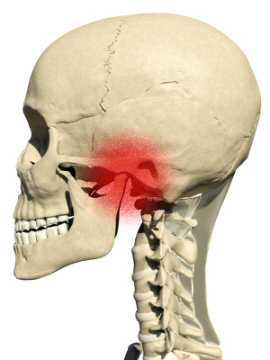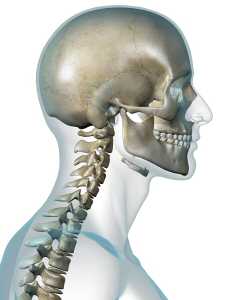The Haven
Healing Centre
The Orchard
Draycott Rd, Cheddar
Somerset

The Haven |

|
| Natural Complementary Therapies - your key to improved health and well-being | |
|
Home About Contact Gift Solutions Articles Treatments Products Page: 1 2 3 4 5 Appointments |
TemporoMandibular Joint (TMJ) DisorderA major treatment breakthrough for jaw joint dysfunction & pain!The answer to: Temporomandibular joint (TMJ) pain and dysfunction, general jaw pain, jaw and ear pain, jaw and neck pain, jaw joint dysfunction, painful jaw muscles and facial jaw pain, using a completely natural therapy treatment. Get help now: If you suffer from temporomandibular joint (TMJ) pain or dysfunction of the lower jaw, the number to book your appointment at The Haven Healing Centre, can be found below. I look forward to seeing you soon. Phil Temporomandibular joint (TMJ) syndrome is pain in the jaw joint that can be caused by a variety of medical problems, such as acute or chronic inflammation of the temporomandibular joint, which connects the mandible to the skull. You are probably reading this right now because you are suffering some degree of joint pain and need answers to help relieve your aching jaw. The disorder and resultant dysfunction can result in significant pain and right now you may also be suffering a degree of impairment. The TMJ connects the lower jaw (your mandible) to the skull (your temporal bone) in front of the ear. Problems in this area can cause head and neck pain, facial pain, ear pain, headaches, a jaw that is locked in position or difficult to open, problems biting, and jaw clicking or popping sounds when you bite. 
If this sounds like you, you may have a jaw that is seating incorrectly, or disorganized, either off to one side or the other. Often this can be caused by a blunt trauma accident, or by degeneration. Most often I see patients with blunt trauma; such as coming off a bike (going over the handlebars was a recent one), climbing trees (or rather falling out of trees), and one young lady who's younger brother threw his arms around her to give her a hug, missed, and clonked her in the jaw with the plastercast on his right arm and knocked her jaw flying. Any of these scenarios could result in considerable pain, grinding of teeth, discomfort in chewing, talking or swallowing and a fascial appearance/expression that seems a little 'off' from normal. Temporomandibular joint disorder is also referred to as temporomandibular joint syndrome. You have two TMJs, one on each side of your jaw, just slightly forward of your ears. The TMJ is comprised of muscles, blood vessels, nerves, tendons, ligaments, bones, connective tissue, and the teeth. Inside the jaw joint, there is a smooth material called cartilage, covering part of the bones. There is also a cartilage disc within the joint, a kind of a spacer. The joint is lubricated by fluid called synovial fluid. Can I feel my own temporomandibular joint? Yes, place your fingers just in front of your ears and move your jaw from side to side. You will feel the rounded ends of the lower jaw (called condyles) moving toward and away from your fingers. The jawbone has two movements: a rotation or hinge action, which allows opening and closing of the mouth, and a gliding action, that allows your mouth to open wider, such as when you yawn. If you talk or pretend to chew, you can feel this gliding action in the joint socket of the temporal bone. The condyles slide back to their original position when you close your mouth. Open and close your mouth and feel this movement. Feel also the strength of the muscles that control this movement. Chewing creates a strong force which must be distributed around the face, neck and skull. This disc provides a pivotal anchor point and distributes the forces of chewing throughout the joint space. When there is no TMJ dysfuction this action is soft and smooth. The soft disc of cartilage that lies between the condyle and the temporal bone, acts as a shock absorber, so that sudden, hard, or rapid movements can reduce the impact of bone on bone. Boxers push this shock absorbing ability to the very limits, of course, but it's not unusual for rugby players, footballers, cyclists, cricketers, or indeed any other sport, to suffer a high speed impact that can shock the TMJ into inflammation and distortion. What are the symptoms of a temporomandibular joint disorder?
Yes, there can be many other causes and some are surprisingly common. Most revolve around the muscles that operate the jaw and the TMJ itself, which houses all the mechanisms of swing and movement.  Jaw clenching and teeth grinding (bruxism) during sleep is a common cause.
Jaw clenching and teeth grinding (bruxism) during sleep is a common cause.Although, wearing away of the teeth can be considerably more expensive to manage than a few treatments of jaw manipulation. There may be increased sensitivity to muscle movement which causes pain, possibly influenced by some neurological dysfunction in the nerves of the face (like with excessive tooth sensitivity). Wear and tear to the cartilage lining the inside of the TMJ. This can cause inflammation in the joint and may be further exacerbated by arthritis. Indeed, the build up of acid deposits in any joint can become a cause of joint dysfunction as it upsets the lubricating ability of the fluids in the joint. What treatments are available for temporomandibular joint disorder? Mostly you will receive the advice to treat with painkillers (paracetamol, ibuprofen or codeine) and rest. And, to be fair, this is the best first choice, as no intervention is probably the most useful long term. If the body can heal itself, let it. Your healing abilities and immune system become stronger the more they are used. Avoid the use of chewing gum. (This is good advice anyway. There is a reason manufacturers keep their recipies a secret - okay? - enough said). Heat may help, but cold is better if there is some inflammation; in which case heat can come after. Relaxation techniques can be helpful if you find you are stressed, at work or home. Bite guards from your dentist may be helpful to some people, but the evidence is a little thin. Ultrasound and jaw exercises may be prescribed for persistent sufferers. My own preference is physical intervention. Gentle massage and manipulation to reduce inflammation or the cause of the inflammation and to increase range of movement of the jaw. This assessment also highlights any distortion of the jaw, which can then be the subject of gentle straightening techniques. These corrections allow the jaw to resettle to its proper position, thus reducing the strain on the TMJ and associated tissue, nerves and muscles. My final message to you is this: If you are worried about your jaw pain or think it's getting worse, or if your TMJ disorder has already become chronic, then the sooner you do something about it, the better. Factors that might make TMJ symptoms worse are stress, poor diet, and lack of sleep, which can produce more ill-health and so early treatment is recommended. Don't wait! The sooner we start treatments, the sooner you are likely to see improvement in your condition. If you live in any of the towns and villages in the list below, you are well within a 2-40 minute drive of The Haven Healing Centre, and I'd be delighted to help you to treat yourself for this condition. Please call Phil Chave on 01934 740275 to make your appointment or to talk about a treatment plan structured around your needs. Don't wait. Make your appointment today. You'll be glad you did! A couple of last minute thoughts to end this article - things you may not have known If you are suffering with heartburn, nasal congestion and/or chronic headaches, it is likely the last thing you will be thinking is this is in someway connected to my TMJ. Well you could be wrong. A dysfunctional and off-set jaw can obstruct the airway causing the head to project forward. This will keep the airway open but distorts the cervical and thoracic spinal alignment, pinching the nerves of the central nervous system in the neck. What effect can this have long-term? Digestive disorders, indigestion, nausea, nasal and sinus congestion, headaches and head pain, taste desensitization, neck and shoulder muscle pain and tension, and insomnia are just a few of the symptoms that can be the result of temporomandibular joint disorder. So don't ever make the mistake of thinking TMJ disorder just comes on its own. What can be done about it? So it may mean that you need a session or two of Spinal Touch alongside your TMJ treatment to bring everything back into alignment, free up the nerves, allowing you to breathe easier and stop those incessant headaches and any other related symptoms. Please share this page with your friends. Thank you.
Note: DISCLAIMER: This information is not presented by a medical practitioner and is for educational and informational purposes only. The content is not intended to be a substitute for professional medical advice, diagnosis, or treatment. Always seek the advice of your physician or other qualified health provider with any questions you may have regarding a medical condition. Never disregard professional medical advice or delay in seeking it because of something you have read. It's a small investment in yourself, but could be a life-changing experience you will cherish forever. |
| Copyright © Philip Chave 2008- TheHavenHealingCentre.co.uk All rights reserved. Email: privacy |